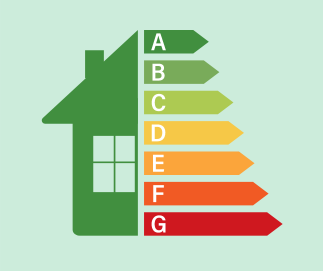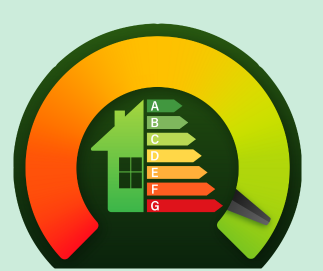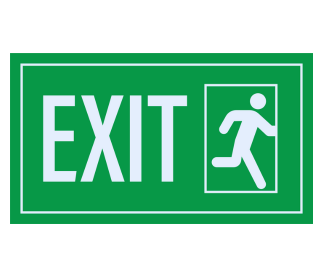Electrical Safety Certificates London
Get your landlord electrical safety certificate from one place.
Looking for electrical safety certificates in London? Our expert team offers reliable EICR, EPC, PAT testing, Fire Alarm Certificates, Emergency Lighting Certificates, and more. We ensure your property meets all safety standards and legal requirements with fast and professional service.
- EICR Certificate
- EPC Certificate
- PAT Certificate
- Emergency Lighting Certificate
- Smoke Detector Certificate


What is an Electrical Safety Certificate?
An electrical safety certificate is an official document that verifies the safety of the electrical systems and appliances in a property. It shows that all wiring, installations, and devices have been inspected and meet the necessary safety standards. This helps prevent potential risks like electrical fires or shocks. For landlords and property owners, having an electrical safety certificate is crucial, as it demonstrates that the property complies with legal safety regulations, ensuring the safety of tenants and occupants.
Why is an Electrical Safety Certificate Important?
Prevents Electrical Hazards
The certificate ensures that your electrical wiring, circuits, and installations are safe. This reduces the risk of electrical fires, shocks, and malfunctioning equipment, keeping everyone in the property safe.
Legal Compliance for Landlords
In many areas, landlords must have a valid electrical safety certificate for rental properties. Not complying with this can lead to fines, legal penalties, and even difficulties renting or selling the property.
Protects Property Value and Tenant Trust
Having a valid certificate gives tenants and buyers confidence in the property’s safety. It also protects the property from costly electrical issues that could affect its value or reputation in the market.
Do I Need an Electrical Safety Certificate?
Yes, if you’re a landlord or property owner in the UK, you need an electrical safety certificate. This is a legal requirement to ensure that your property’s electrical systems are safe for tenants.
When Do You Need One?
New Tenants: You must provide a valid certificate before a new tenant moves in.
Periodic Checks: An Electrical Installation Condition Report (EICR) is required every 5 years, or sooner if the previous report highlights issues.
Who is Responsible?
As the property owner or landlord, it’s your responsibility to arrange and pay for the electrical inspection and certificate. At First Landlord Certificates London, we offer a hassle-free service to help you stay compliant with UK regulations and ensure your tenants’ safety.
What are the Different Types of Electrical Safety Certificates?

An EICR assesses the condition of the electrical wiring and installations in a property. It identifies potential safety hazards and ensures that the electrical system meets current standards. An EICR is required every 5 years or whenever there is a new tenant.

A PAT test checks the safety of portable electrical appliances like kettles, heaters, and computers. It ensures these devices are safe to use and not at risk of causing electrical issues. PAT tests are typically required annually or at regular intervals depending on appliance use.

An EPC measures the energy efficiency of a property, which includes aspects of the electrical system. While its primary focus is energy use, it plays a role in overall safety by ensuring that electrical systems are not contributing to excessive energy waste. EPCs are needed when selling or renting out a property.

This certificate ensures that emergency lighting systems are properly installed and functioning in case of a power failure. Emergency lighting is vital in rented properties, particularly in communal areas, to ensure safe evacuation during an emergency.

A smoke detector certificate confirms that smoke alarms are correctly installed and functional in key areas of a property. Smoke detectors are a legal requirement in most rental properties and are critical for early fire detection, helping to protect both tenants and the property.
Electrical safety certificate services
EICR Certificate
Starting From £129.99
Ensure electrical installations meet legal safety standards. Starting from £129, our EICR service gives landlords a compliant and safe property.
PAT Testing Certificate
Starting From £59.99
Keep electrical appliances safe and compliant. Starting at £59, our PAT testing checks device safety, perfect for rented properties.
Emergency Lighting Certificate
Starting From £79.99
Certify emergency lighting meets safety standards. Starting from £79.99, our assessments ensure reliable, effective illumination in all emergencies.
Energy Performance Certificate
Starting From £79.99
Get a reliable energy efficiency rating for your property starting at £79.99, helping tenants understand their potential energy costs.
Factors That Influence the Cost:
- Size of the Property: Larger properties take longer to inspect, so the cost may be higher.
- Number of Appliances: For PAT testing, more appliances will increase the overall cost.For PAT testing, more appliances will increase the overall cost.
- Condition of the Electrical System: If repairs or updates are needed, there may be additional costs before the certificate can be issued.
How to Get an Electrical Safety Certificate in London?
Book a Qualified Electrician
You’ll need to hire a qualified electrician or a registered inspector to perform the checks. Make sure they are certified to issue the specific type of certificate you need, like EICR or PAT.
Schedule the Inspection
Once you've found the right professional, schedule a convenient time for them to inspect your property. They will check your electrical systems, appliances, or installations to make sure everything is safe and meets regulations.
Receive Your Certificate
After the inspection, you’ll be issued a certificate if everything passes. If any issues are found, you may need to fix them before the certificate is issued.

What Does an Electrical Safety Check Involve?
An electrical safety check is a thorough inspection of your property’s electrical systems. Here’s what it typically includes:
- Wiring and Installations: The electrician will check the condition of your wiring, sockets, and electrical circuits to make sure everything is safe and up to standard.
- Electrical Appliances: They will inspect any electrical appliances in the property, like kitchen equipment or heaters, to ensure they are working safely.
- Fuse Box and Circuit Breakers: Your fuse box and circuit breakers will be tested to ensure they’re functioning correctly and can handle the electrical load safely.
The time for the inspection varies. For example, an EICR usually takes a few hours, depending on the size of the property, while PAT tests are quicker, focusing on portable appliances. Once the check is complete, you’ll either receive your certificate or be advised on any necessary repairs.
Most Asked Question About Electrical Safety Certificate
How Much Does an Electrical Safety Certificate Cost?
The cost of an electrical safety certificate depends on the type of certificate you need and other factors. Here’s a general price range:
- EICR (Electrical Installation Condition Report): Typically between £100 to £250, depending on the size of the property and the number of circuits to be tested.
- PAT (Portable Appliance Test): This can range from £1 to £3 per appliance, with minimum fees starting around £50 for smaller properties.
- Other Certificates (like Smoke Detector or Emergency Lighting): These usually cost between £50 to £150, depending on the complexity of the inspection.
Factors That Influence the Cost:
- Size of the Property: Larger properties take longer to inspect, so the cost may be higher.
- Number of Appliances: For PAT testing, more appliances will increase the overall cost.
- Condition of the Electrical System: If repairs or updates are needed, there may be additional costs before the certificate can be issued.
At First Landlord Certificates London, we offer competitive pricing and ensure you get the certification you need quickly and affordably.
What Happens if Your Electrical Safety Inspection Fails?
If your electrical safety inspection fails, it means there are issues with your electrical system. The inspection will identify problems such as faulty wiring or unsafe appliances. Without addressing these issues, you won’t receive the safety certificate.
To move forward, you need to hire a qualified electrician to fix the problems. Once the necessary repairs are completed, schedule a follow-up inspection to confirm that everything is now up to standard.
It’s crucial to address these issues promptly. Ignoring them can lead to legal fines and complications with renting or selling your property. More importantly, fixing these problems ensures the safety of your tenants and prevents potential accidents or injuries.
At First Landlord Certificates London, we can help with both repairs and re-inspections to make sure your property meets all safety requirements.
How Long is an Electrical Safety Certificate Valid?
The validity of an electrical safety certificate varies depending on the type:
- EICR (Electrical Installation Condition Report): This certificate is usually valid for 5 years. It’s a good idea to schedule a new inspection before the old one expires to stay compliant.
- PAT (Portable Appliance Test): PAT certificates typically last for 1 year. You should get your appliances tested annually to ensure they remain safe.
- EPC (Energy Performance Certificate): An EPC is valid for 10 years. However, if you make significant changes to your property, you might need a new certificate sooner.
- Emergency Lighting and Smoke Detector Certificates: These usually need to be renewed annually or whenever there is a change in the installation.
Landlords should renew these certificates before they expire to avoid legal issues and ensure the ongoing safety of their property.
Electrical Safety Certificates and Selling a Property
When selling a property, an electrical safety certificate is not always a legal requirement, but having one is highly beneficial. An up-to-date certificate demonstrates that the property’s electrical systems are safe and meet current standards.
Having a current certificate can make your property more appealing to buyers. It shows that you have taken care of the property, which can build trust and confidence. This often leads to a smoother transaction and can even help you achieve a higher sale price.
While not mandatory, presenting a valid certificate when selling can help speed up the process and prevent delays. It ensures that potential buyers are reassured about the safety and condition of the property.
Common Electrical Safety Risks to Watch For
During electrical safety inspections, several common issues might be found. These include:
- Faulty Wiring: Wires that are damaged or not properly installed can pose serious risks. They might cause electrical fires or shocks.
- Outdated Fuse Boxes: Old or damaged fuse boxes may not protect your electrical system properly, leading to potential hazards.
- Overloaded Circuits: Too many appliances on one circuit can overload it, increasing the risk of fires or electrical failure.
- Improperly Installed Outlets: Outlets that are not installed correctly or are damaged can be dangerous and cause electrical shocks.
To prevent these hazards, here are a few tips:
- Regular Inspections: Have a qualified electrician check your electrical system regularly to catch and fix any issues early.
- Update Old Systems: Replace outdated fuse boxes and wiring with modern, safer alternatives.
- Avoid Overloading: Don’t plug too many appliances into one circuit. Use extension cords and power strips wisely.
- Check Outlets and Cords: Make sure outlets are properly installed and electrical cords are in good condition, without frays or damage.
By being aware of these risks and taking preventive measures, you can keep your property safe and avoid potential electrical problems.
